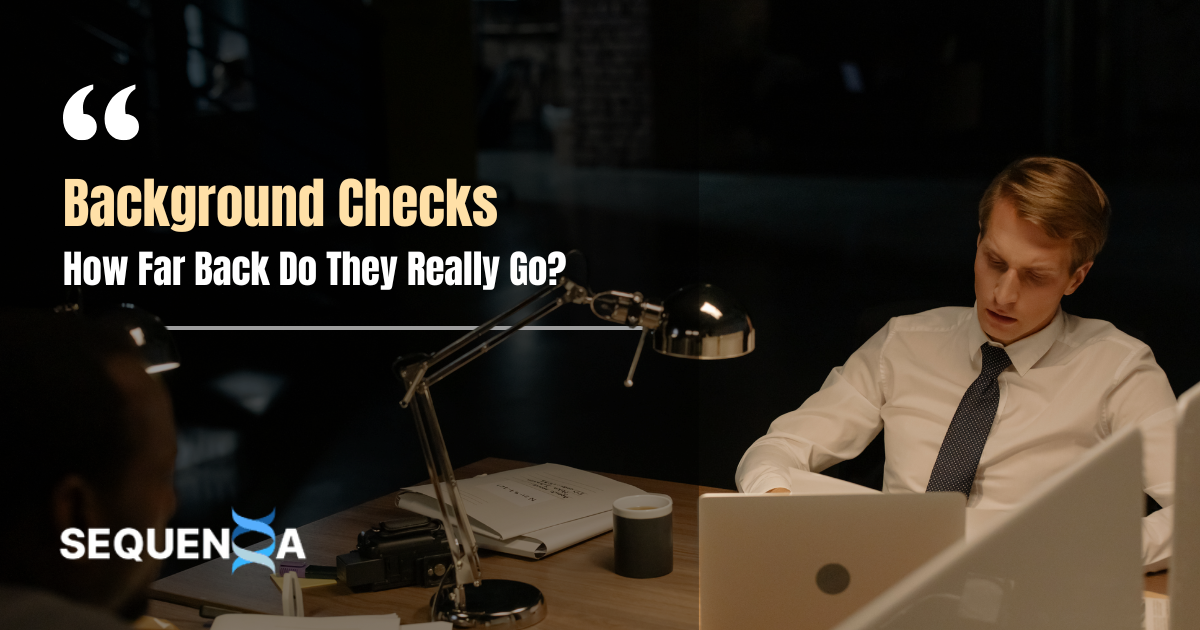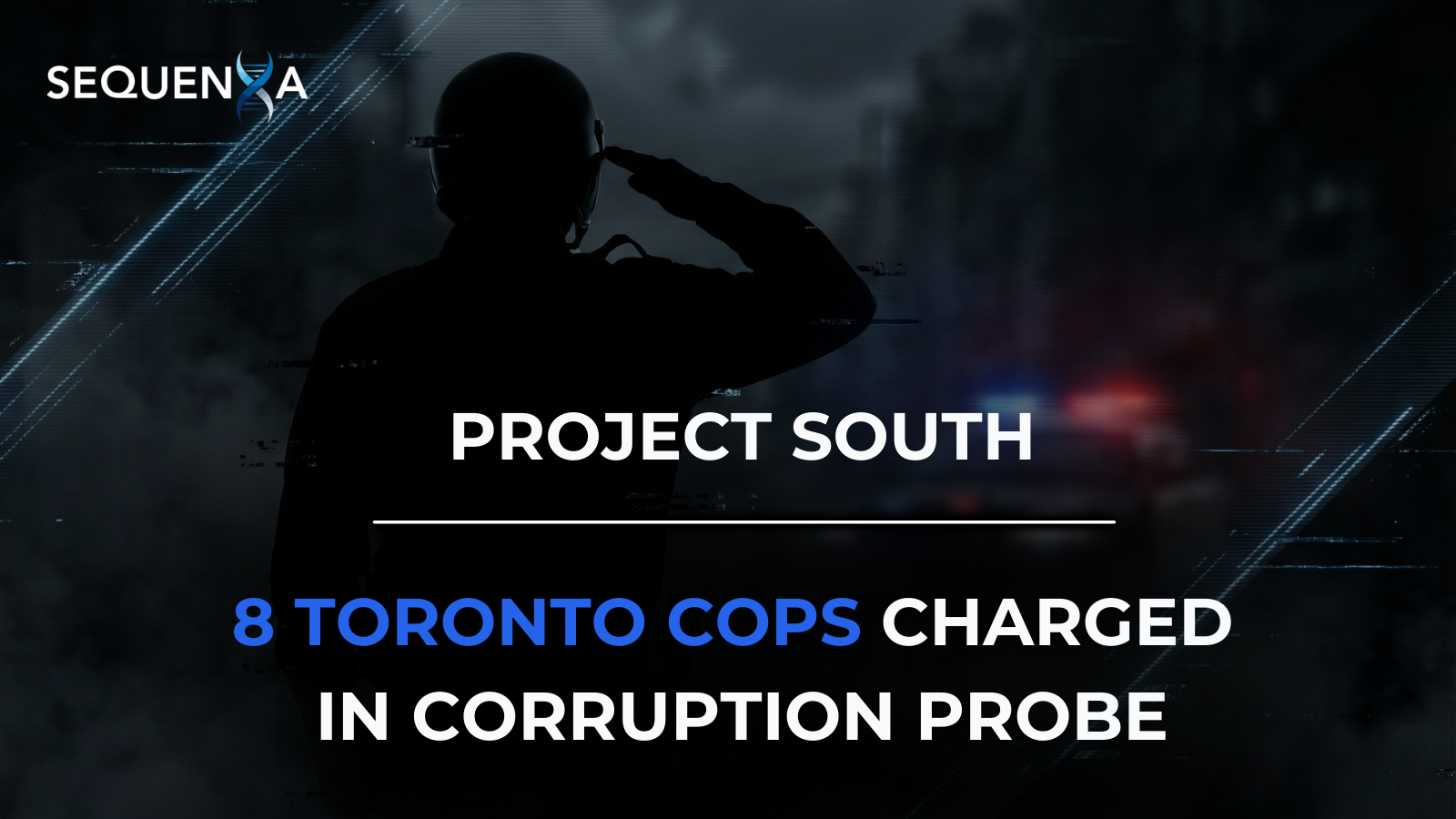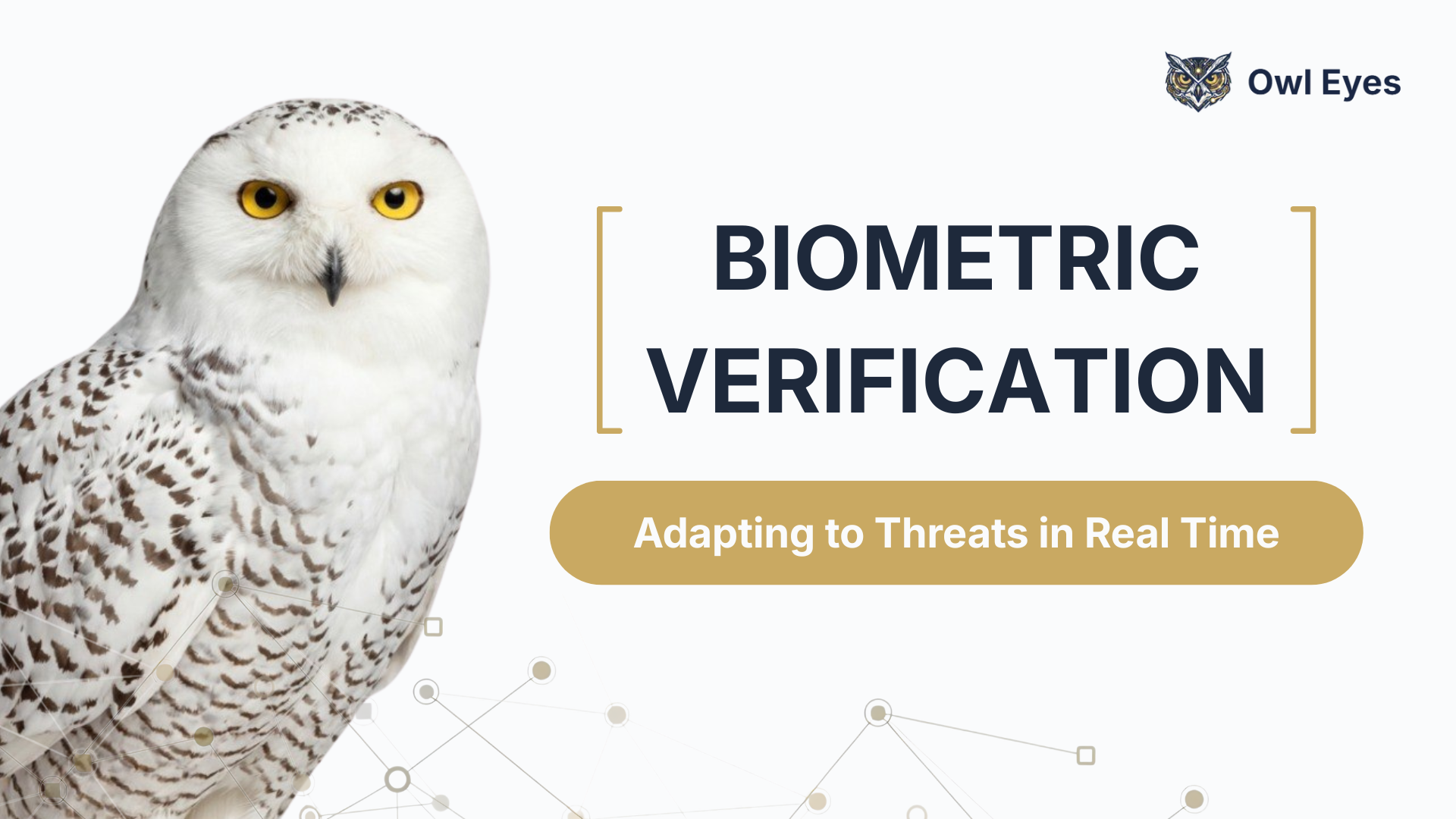Background Checks: How Far Back Do They Really Go?

Background checks are essential tools used by employers, institutions, and agencies to assess an individual's history. These screenings help make informed decisions, especially in roles involving safety, finance, or sensitive information.
Types of Background Checks:
Criminal Background Checks – Review felony and misdemeanor records
Employment Background Checks – Confirm past job history and roles
Fingerprint Background Checks – Used for high-security clearances or sensitive industries
School Background Checks – Used by educational institutions for staff and volunteers
Federal Background Checks – Applied for roles in federal agencies and with security clearance requirements
Did You Know? 94% of employers conduct some form of background check during the hiring process (National Association of Professional Background Screeners, 2023).
"A comprehensive background check protects not only the company but also builds trust with clients and communities."
Have you ever had to undergo more than one type of background check for a single role?
How Far Does a Background Check Go?
How far back can a background check go? This common question doesn’t have a one-size-fits-all answer. The duration covered by a background check varies based on the type of screening, state laws, industry standards, and the position involved. In general, most background checks go back 7 to 10 years. However, depending on specific circumstances, they can go back further.
What Determines How Far Back?
Type of Check:
How far back does a criminal background check go? Typically, criminal background checks go back 7 years, but in some states and industries, they can cover a longer period. For example, how far back can a criminal background check go in federal cases? Federal background checks can go back indefinitely, depending on the agency’s requirements.Fingerprint Checks:
Wondering how far back does a fingerprint background check go? These checks, often used in government or high-security jobs, may go back decades. How far back do fingerprint background checks go depends largely on the data held by law enforcement agencies.Employment Background Checks:
For job seekers, how far back does an employment background check go is a crucial concern. Typically, these checks cover the last 7 to 10 years. However, how far back do jobs go on background checks can vary, especially for executive or sensitive roles. How far do employment background checks go may also be affected by the employer's policies and the nature of the job.Federal and Passport Checks:
How far back do federal background checks go? These often include a lifetime criminal history review. Similarly, how far back does a passport background check go may include a deep dive into identity and criminal records, depending on the application process.State Laws and Industry Regulations:
State laws play a significant role in determining how far back a background check can go. Some states restrict the reporting of arrests or convictions older than seven years. Meanwhile, certain industries, such as finance, healthcare, and childcare, may require a 10 year background check or more.
So, how many years back does a background check go? The answer is: it depends. How far back do background checks go is influenced by numerous factors, including jurisdiction, job level, and the type of information being reviewed.
Also worth noting: how long do background checks last or how long does a background check last generally refers to how long the results are considered valid. This varies, but most employers request a fresh check during each new hiring cycle.
Example: Financial institutions may run background checks dating back 10 years to meet federal compliance standards.
"How far a background check goes often depends more on what’s legally permissible than what’s technically possible."
Do you think some industries should have unlimited access to background data?
How Far Back Do Criminal Background Checks Go Back?
Criminal background checks are among the most requested forms of screening. But how far do criminal background checks go back? The answer depends on the type of check being conducted and the requirements of the employer or institution.
General Timelines:
Standard Checks: Typically 7 years. This is the most common answer to the question, how far do criminal background checks go back, especially for roles not involving sensitive data or high-level trust.
Extended Checks: Up to 10 years or more for specific roles. In regulated industries or high-responsibility positions, employers may ask, how far do criminal background checks go back, expecting a deeper history.
Lifetime Checks: For federal employment or security clearances, the answer to how far do criminal background checks go back may be “as far as records exist,” encompassing a person’s entire adult life.
Employers and applicants alike should understand how far do criminal background checks go back to properly prepare for the hiring process and set realistic expectations.
Factors That Influence Reach:
State limitations on older records
Whether crimes were felonies or misdemeanors
Whether the applicant was convicted or just charged
Example: A candidate applying for a job in a hospital may have a criminal background check going back 10+ years if the role involves patient care.
Did You Know? Over 70 million Americans have a criminal record, influencing how screening policies are shaped (Brennan Center for Justice, 2023).
Wondering if your past record could show up on a background check? Understand what’s visible and what’s not through Our Blog.

How Far Back Does a Level 2 Background Check Go?
A Level 2 background check is a fingerprint-based screening that offers a more in-depth review compared to standard Level 1 checks. It’s typically required for positions of trust, including those working with vulnerable populations like children, the elderly, or people with disabilities.
What It Includes:
FBI fingerprint-based national criminal history check
State and local law enforcement databases
Arrests without convictions (in some jurisdictions)
Pending charges and sealed records (depending on state laws)
How Far Back Does a Level 2 Background Check Go?
Often goes back 10 years or more, especially if criminal activity is involved
In some cases, may cover the entire adult life of the applicant
Example: A Level 2 background check is required for someone applying as a nursing home caregiver. The check uncovers a misdemeanor from 14 years ago, triggering a review process.
Did You Know? Over 90% of healthcare employers use Level 2 background checks when hiring for direct patient care roles (Health Affairs, 2022).
Do you believe Level 2 background checks should consider non-conviction records?
How Far Back Do Employment Background Checks Go?
Employment background checks vary by employer, but they usually review professional history, criminal records, and education credentials.
Typical Timeline:
Most employment background checks go back 7 years
Some may go up to 10 years, especially for senior-level roles or financial positions
Background checks for jobs in government or defense may go further
What They Look For:
Job titles and responsibilities
Dates of employment
Criminal records
Gaps in employment
How far do background checks go?
Employers may verify jobs going back as far as 15 years, but typically focus on the last decade
Example: A candidate applying for a CFO role may be asked to disclose and verify employment history going back 12 years.
Did You Know? 46% of employers have reported discovering discrepancies in job histories during background checks (CareerBuilder, 2023).
"Consistency and honesty on your resume are key, background checks don’t lie."
How Far Back Does a School Background Check Go?
Educational institutions conduct background checks to ensure the safety of students and staff. But how far back does a school background check go?
What It Includes:
Criminal background checks
Sex offender registry checks
Fingerprint background checks in some states
Typical Timeline:
School background checks often go back at least 7 years
In many districts, they reach back 10 years or more, especially for roles involving minors
Did You Know? 41 states require fingerprint background checks for school employees (National Council on Teacher Quality, 2022).
Considering a role in education? Make sure your record aligns with the standards by reading Our Blog.

How Far Back Does a Fingerprint Background Check Go?
Fingerprint background checks are widely used in high-security industries, including law enforcement, healthcare, education, and government contracting. Unlike name-based checks, fingerprint background checks tap directly into federal and state criminal databases.
How Far Back Do Fingerprint Background Checks Go?
These checks can go back decades, even a person’s entire adult life
FBI databases do not have a time limit on recordkeeping
What They Reveal:
Arrests and convictions
Warrants and pending cases
Incarceration history
Sealed or expunged records (in rare instances, based on job type)
Example: A private security firm requires fingerprint checks for all hires, revealing a dismissed charge from 18 years ago, still visible in the FBI database.
Did You Know? The FBI’s Integrated Automated Fingerprint Identification System (IAFIS) stores over 70 million criminal history records (FBI, 2023).
Do you think lifetime-access fingerprint databases should be used for all professions?
How Far Back Do Federal Background Checks Go?
Federal background checks are among the most rigorous, especially for roles involving national security, classified information, or federal agency employment.
How far back does a federal background check go?
Can reach back 10 years or more, depending on clearance level
For Top Secret roles, reviews may extend to residential, employment, and financial history from the past 15+ years
Included Checks:
Criminal and credit history
Drug usage
Foreign contacts and travel
Education and employment verification
Example: A candidate for a Department of Defense contractor role must disclose all foreign contacts and residential addresses for the past 15 years.
Did You Know? Over 5 million Americans hold federal security clearances, with deep background reviews part of the vetting process (ODNI, 2022).
Federal checks are not just about criminal records, they evaluate your lifestyle, loyalty, and reliability."
Frequently Asked Questions (FAQs)
1. How far back do criminal background checks go back?
Criminal background checks generally go back 7 years but can extend further depending on the state and industry.
2. How far back does a level 2 background check go?
Level 2 checks often look back at a person’s entire adult history, especially when fingerprint data is involved.
3. How far back do employment background checks go?
Most employment background checks go back 7-10 years, but executive roles may prompt a 15-year lookback.
4. How far back does a school background check go?
School background checks typically review the past 7-10 years, with added emphasis on fingerprint data.
5. How far back does a fingerprint background check go?
Fingerprint checks can reveal records from decades ago, depending on what’s stored in state and FBI databases.
6. How long do background checks go back or how far back does a background check go?
Employers often verify employment history for the last 7-10 years, though some may go further.
7. How far can a background check go?
Depending on the type, a background check can go as far back as a person's adult record allows, sometimes their entire lifetime.
8. How long do background checks last?
Most are valid for 3-5 years, after which re-screening may be necessary for compliance.
Ace Background Checks with Confidence
Background checks are no longer a simple checkbox in the hiring process, they’re a powerful lens into someone’s history. Whether it’s determining how far back a criminal background check goes or understanding the reach of federal screenings, it’s crucial to know where you stand.
From Level 2 background checks to fingerprint screening and federal vetting, different roles come with different standards. Staying informed empowers both applicants and employers to align with industry expectations while staying compliant with laws.
Looking to simplify how your organization approaches background checks? Sequenxa offers smart, secure, and compliant screening solutions tailored to your industry.
References
American Trucking Associations. (2023). Trucking industry statistics. Retrieved from https://www.trucking.org
National Association of Professional Background Screeners. (2023). Annual Employer Screening Survey.
SHRM. (2022). Background Check Practices Report. Society for Human Resource Management.
Health Affairs. (2022). Healthcare Hiring and Background Checks.
CareerBuilder. (2023). Employment Screening Insights.
National Council on Teacher Quality. (2022). State Requirements on Background Checks for Educators.
FBI. (2023). IAFIS Fact Sheet. Federal Bureau of Investigation.
Office of the Director of National Intelligence (ODNI). (2022). Security Clearance Statistics.
TSA. (2022). Airport Security and Hiring Compliance Guidelines.



